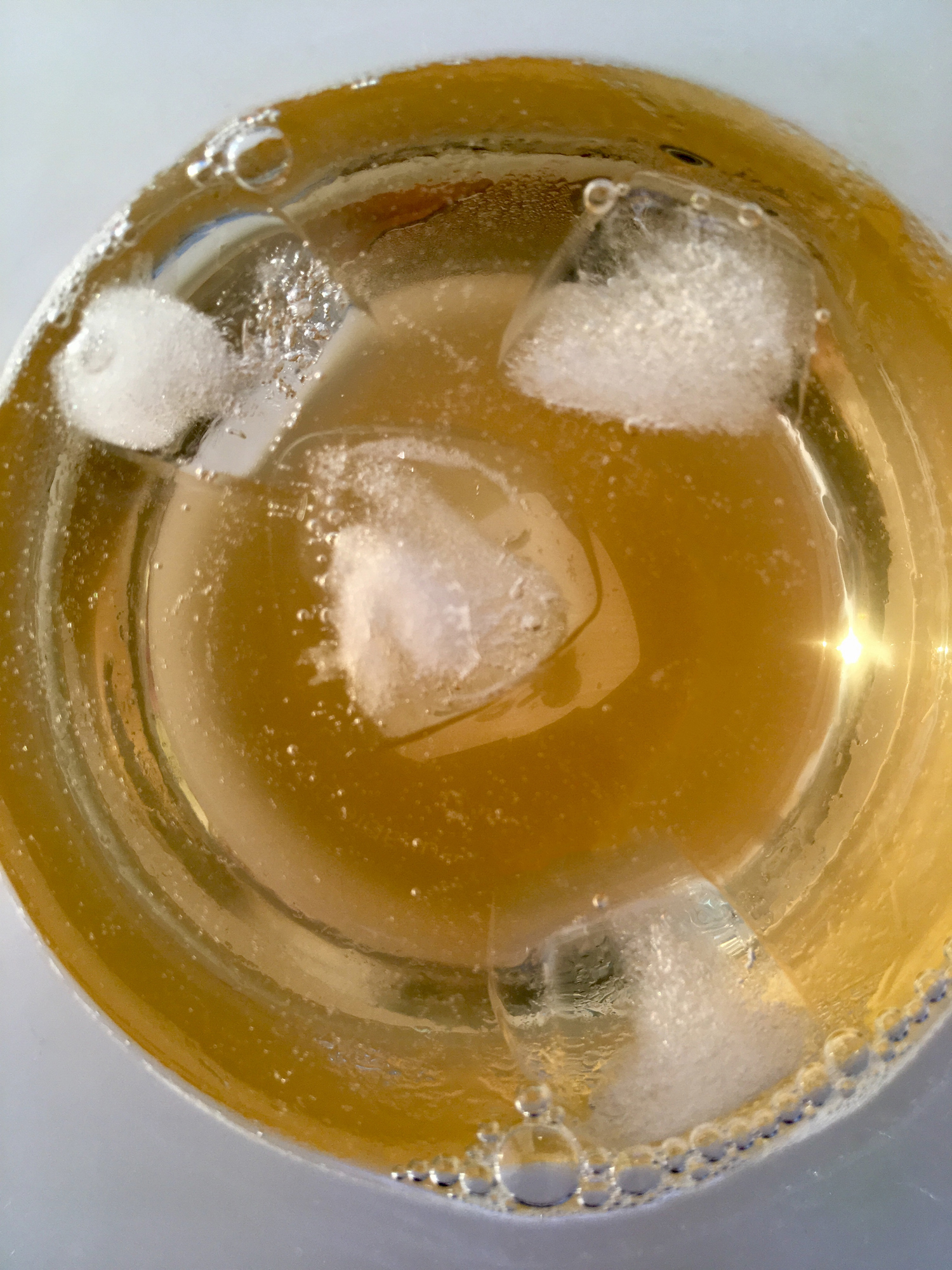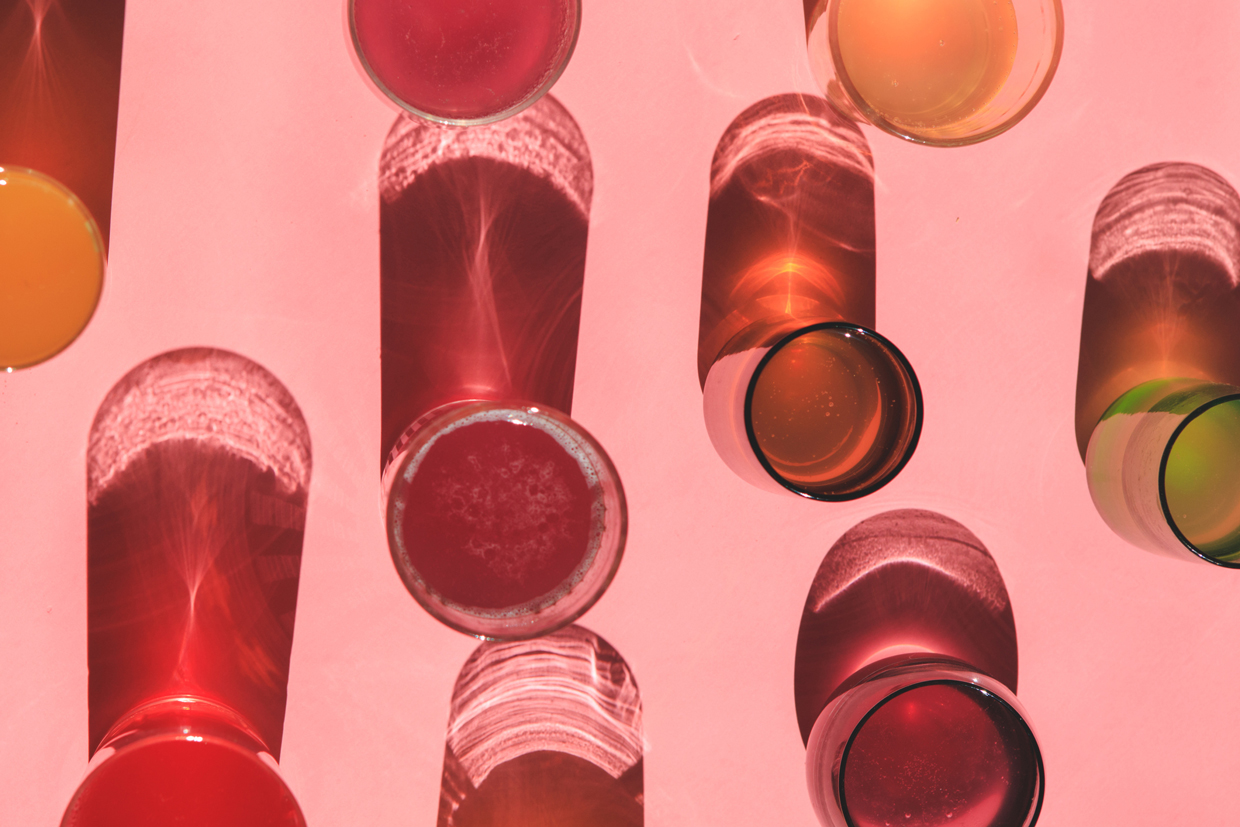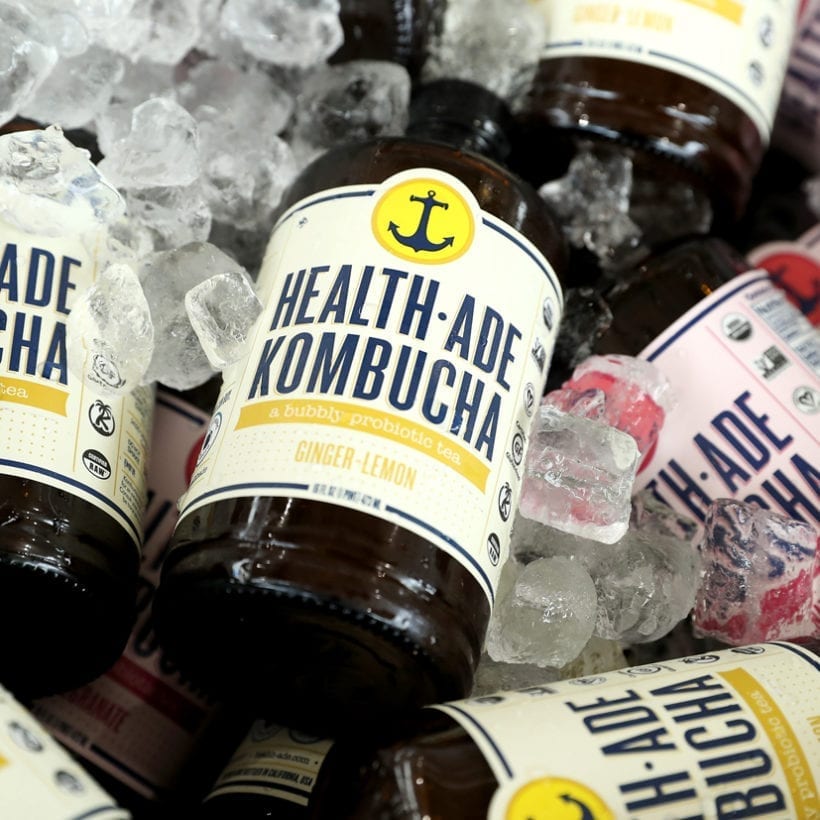From probiotic sodas like Olipop to non-alcoholic spirits like Kin Euphorics, healthy beverages are having a moment and there are two fermented thirst-quenchers I currently can’t stop sipping on: kombucha and water kefir. I’ve had kombucha on my beverage lineup for many years and have even tried making my own before (that’s a story for another time), but I only recently discovered water kefir while browsing the aisles of my local natural food store, aka my favorite pastime.
Much like kombucha, water kefir has a bubbly texture and a bit of an acidic taste, and many bottles are similar to those used for kombucha (with different labels, of course). But, despite their similarities, the two kinds of fermented drinks are quite different from each other.
Find out what those differences are, plus the benefits of kombucha and water kefir, ahead.

Kombucha vs. Water Kefir
While kombucha and water kefir are both fermented beverages, their origin stories are different — which makes everything from their consistency to their flavor to their benefits different. “Kombucha is fermented tea and water kefir is fermented fruit-infused water,” explains Daina Trout, the founder and Chief Mission Officer of Health-Ade Kombucha, who has a master’s degree in nutrition and public health from Tufts University. “Since they ferment with different bases and cultures, kombucha and water kefir will offer differing compositions of probiotic and acids, so drinking both will help add diversity to [the] gut microbiome,” she adds.
Water kefir uses fruit to feed probiotic bacteria and kombucha uses cane sugar, which is why kombucha is stronger in probiotics since “bacteria prefer sugar as a food source.” Since kombucha is made from fermented tea, kombucha contains caffeine. It’s a small amount compared to coffee or regular tea. According to Trout, coffee has about 100-120 milligrams of caffeine per cup and tea has about 20-50 milligrams per cup, whereas kombucha typically only has 2-8 milligrams of caffeine per cup.
Flavor-wise, water kefir is lighter in flavor compared to kombucha and generally offers a milder taste, making it a great gateway to fermented beverages, especially for those who might not be as partial to the taste of kombucha.

What are the benefits of kombucha and water kefir?
“The biggest benefit both water kefir and kombucha — and, actually, all fermented foods and drinks — bring to the table are the probiotics and organic acids that result from fermentation,” says Trout. “A high abundance and diversity of bacteria in your gut is what you need to have a strong microbiome, so drinking both will contribute to a healthy gut,” she adds. According to Trout, taking care of the gut through consumption of fermented foods is always a great idea because “having a healthy gut has been shown repeatedly in scientific trials to drive a number of functions, including mood, skin, immunity, energy, blood sugar metabolism, and inflammation.”

Water kefir and kombucha are also great sources of certain vitamins and minerals. “B vitamins — especially B12 — and vitamin C are the most common in fermented drinks and meaningful amounts have been identified in many kombuchas and some water kefirs,” notes Trout. That said, the amount of these vitamins and minerals varies as “not all [kombuchas, water kefir, and fermented beverages] have similar amounts.”
If your reason for quenching thirst with kombucha or water kefir is all about probiotics, it is worth noting that kombucha is probably the top choice since it is “more fermented than water kefir.” With more fermentation, “kombucha drives more of the healthy metabolites that make for a healthy gut,” notes Trout. However, Trout also says that the more variety of probiotics, the better. So, getting these healthy gut bacteria from both kombucha and water kefir is beneficial — even if one is more fermented than the other.
What to look for before taking a sip
Trout says there are four important things to consider when finding a high-quality kombucha and water kefir: whether or not they are organic, the ingredients, the price, and the taste.
Kombucha incorporates tea into its fermentation process and water kefir incorporates fruit. Both can be high in pesticides, which is why it is important to choose kombucha and water kefir that is organic. And, as far as ingredients go, Trout says they should be simple and sensical. “Kombucha should have tea, sugar, water, some juice or extract for flavor, and maybe added probiotics,” she explains. “Water kefir should have water, fruit, and kefir grains/probiotics,” she adds, noting “if you see anything beyond those things, I’d ask why.”
With kombucha and water kefir, the price of the product says a lot. And, unfortunately, “the cheapest are usually not the best made,” says Trout. The reason for this is that fermenting things on a commercial level is “very expensive.” So, if you see a full-priced kombucha or water kefir for under $3 a bottle, Trout says it’s possible that corners are being cut.
We only recommend products we have independently researched, tested, and loved. If you purchase a product found through our links, Sunday Edit may earn an affiliate commission.













